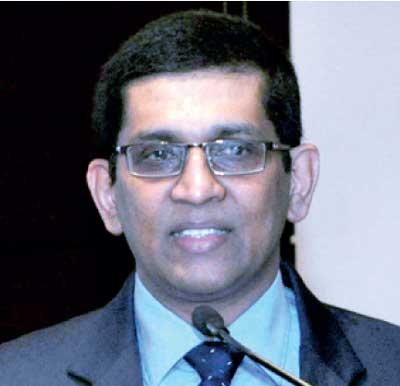Thursday Feb 19, 2026
Thursday Feb 19, 2026
Monday, 27 June 2016 00:00 - - {{hitsCtrl.values.hits}}
 Pressured by higher taxes, importers have called on the Government to maintain consistent policies to enable the private sector to be competitive, pointing out that ad-hoc decisions hinder sustainable growth.
Pressured by higher taxes, importers have called on the Government to maintain consistent policies to enable the private sector to be competitive, pointing out that ad-hoc decisions hinder sustainable growth.
The industry is adamant the administration should adopt policies to reflect all aspects of the economy. Hamstrung by recent tax increases, the industry has noted it is “watchful” of the Government’s future moves.
“Sri Lanka is an economy that is import dependent and as a result the role of importers continues to be significant.
Therefore we urge the Government to always consider these facts and adopt policies to support business activities,” Ceylon Chamber of Commerce (CCC) Import Section Chairman Dinesh de Silva said at the 81st Annual General Meeting (AGM) held on Friday.
He pointed out that tax policy uncertainty weighed heavily on the import trade, especially several tax and other regulatory changes announced in the Budget 2016 including VAT, PAL and NBT taxes that affected importers deeply.
In addition, the unprecedented devaluation of the rupee against the dollar, depreciation of the yen and rising interest rates also severely affected trade, they said.
“High tariffs and trade barriers tend to be pro-producer and anti-consumer. Increased prices especially in food items leave less disposable income with the people. Higher tariffs also reduce efficiencies in companies that would not exist in a more competitive environment. Therefore, we believe the Government should be more cautious when increasing import duties,” he explained.
The Chairman also emphasised serious concern on grey imports into the country, which creates a loss of revenue for the economy while damaging legitimate trade.
Highlighting the positive factors of imports to an economy, de Silva noted that imports into any country supports jobs as it creates a range of activities to bring imports from an origin port to home. It also helps industries such as tourism since travellers prefer international brands of their choice. Imports also create a platform for local producers to move forward and innovate to strongly compete with other products.
Expenditure on imports declined in 2015, largely reflecting the downward movement of international commodity prices and crude oil policies. Imports also dipped due to monetary policy tightening by the Central Bank.
Accordingly, in 2015 expenditure on imports declined moderately by 2.5% to $18,935 million compared to $19,417 million in 2014.
Going forward de Silva said that the council was hopeful the Government would engage in a wider consultation process and be more consistent on trade and tariff policies, enabling the business sector to invest in sustainable business ventures.
While appreciating Premier Ranil Wickremesinghe’s vision to make Sri Lanka a knowledge-based social market and export-oriented economy, he stressed the importance of quickly identifying and amending the Import Export Control Act, Exchange Control Act, Customs Ordinance and Sri Lanka Ports Authority Act and improving the Ease of Doing Business Index to fully suit modern day e-commerce.
Sri Lanka Customs Director General Chulananda Perera attended the AGM as Chief Guest where Dinesh de Silva was re-elected as the Chairman.